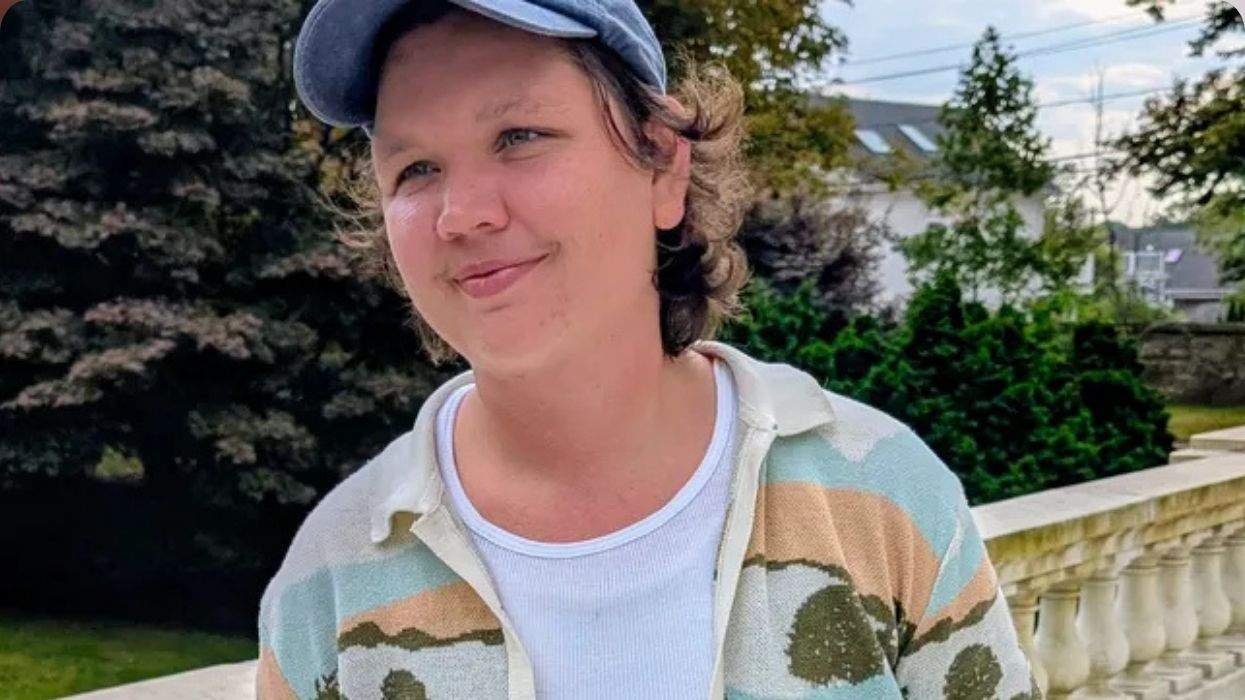The Boyertown Area School District case -- which challenged transgender students' right to use facilities consistent with their gender identity -- ended last week. The Pennsylvania high school students who filed the lawsuit dropped their case after a series of legal defeats, marking the end of a nearly three-year ordeal that could have derailed the progress of trans equality for decades. Across the country, LGBTQ+ advocates breathed a sigh of relief.
But we are not out of the woods yet. The same issues that threatened the future of transgender rights in Boyertown are being argued in the Title VII employment discrimination case now before the Supreme Court. They also play a central role in the litigation challenging President Donald Trump's transgender military ban. Depending on the outcome of these cases, the ability of transgender people to live openly in our society -- to work, attend school, and serve in the military as our real selves -- may be in real jeopardy.
The Boyertown case began in 2016, when the Pennsylvania school district began permitting transg students to use restrooms and locker rooms consistent with their gender identity. At the same time, the district announced that it would permit any student to use private facilities if they wished to do so. A handful of cisgender students -- which were recruited by the anti-LGBTQ+ legal group, Alliance Defending Freedom-- challenged the new policy in federal court. They argued that transgender students are "biologically" still defined by their assigned sex at birth and that being required to share a restroom or locker room with a transgender student, therefore, violated their constitutional right to privacy.
This is the same argument -- that a transgender person is "really" a member of their assigned birth sex -- being argued in R.G. & G.R. Harris Funeral Homes Inc. v. Equal Employment Opportunity Commission, one of three cases that will be heard by the Supreme Court on Oct. 8. R.G. and G.R. Harris Funeral Homes fired Aimee Stephens from her job after she announced her gender transition. In the Supreme Court, the employer is arguing that he had a right to compel Stephens, as an employee, to work in her "biological sex."
The U.S. Department of Justice is backing that argument, consistent with the Trump administration's broader campaign to erase transgender people from public life. Since Trump was elected, the administration has done all it can to eliminate protections for transgender people in schools, healthcare, prisons, and housing. In every case, a common theme is the insistence that a person's so-called "biological sex" determines their gender and that respecting a transgender person's identity violates the rights of others.
To support its position, the administration has resorted to vicious stereotypes, such as Secretary of Housing and Urban Development Ben Carson's recent disparaging description of trans women seeking access to emergency shelters as "big hairy men."
In the military ban case, the government is similarly arguing that it must be permitted to exclude trans people from military service because forcing other men and women to serve alongside them would violate the privacy rights of cisgender people. Absurdly, the military is claiming that it does not seek to discriminate against transgender people but merely to enforce a "neutral" rule that requires everyone to live and serve in their "biological sex."
In Boyertown, the U.S. District Court for the Eastern District of Pennsylvania rebuked that idea that cisgender people are harmed by sharing space with transgender individuals, thereby upholding the school district's anti-discrimination policy. The court held that "high school students have no constitutional right not to share restrooms and locker rooms with transgender students whose sex assigned at birth is different from theirs." The Third Circuit Court of Appeals agreed. Last year the Third Circuit held that "transgender students face extraordinary social, psychological, and medical risks and the School District clearly had a compelling state interest in shielding them from discrimination."
This May the U.S. Supreme Court declined to hear the case, thereby permitting the policy to remain in effect. After a last-ditch effort to keep the case alive, the plaintiffs finally agreed to dismiss their case last week.
But while Boyertown is over, transgender people's fight for legal equality -- including the the essential freedom to live as the gender we know ourselves to be -- has just begun. If the Supreme Court endorses the government's argument that federal law permits employers to ignore a transgender worker's identity in the Harris Funeral Home case, it will undo decades of legal and social progress. If employers can require transgender people to dress and identify as their assigned sex, then schools, businesses, landlords, homeless shelters, prisons, and heatlhcare providers can do so as well. In effect, the government is seeking to force trasngender people back into the shadows, where our very ability to survive is in question.
Make no mistake: The stakes for transgender people could not be higher. The victory in Boyertown was a welcome reprieve, but the battle is far from over.
RELATED | If You're LGBTQ+ and Don't Know About October 8th, Pay Attention






























One of America's Worst Anti-Trans Lawsuits Has Been Dropped
But the fight is far from over.